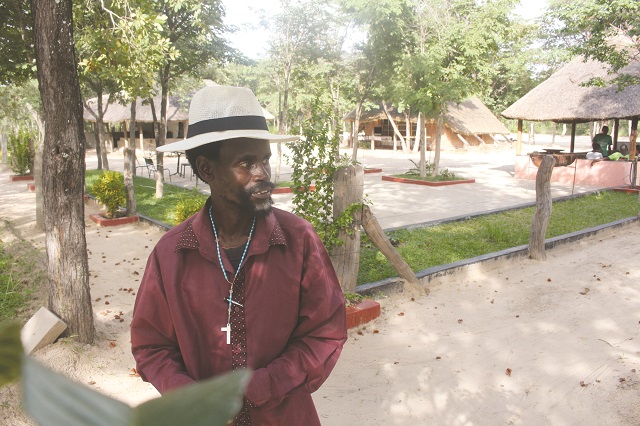
The Sunday News

Peter Matika, Senior Life Reporter
THE local arts industry and perhaps the rest of the world somehow got stunned to learn of Amakhosi Cultural Centre founder and director Cont Mhlanga’s retirement.
The arts industry and the world alike felt it had lost a benevolent arts veteran, with his retirement marking the end of an outstanding era in the arts and culture industry.
The industry, media and some Government ministries refused to acknowledge his retirement, with many still seeking his wisdom to this day.
An intelligent mind he possesses, perhaps Mhlanga really didn’t retire but merely relocated to his rural home to take a break from the fast-paced city life.
Today, approximately a year of his retirement announcement, the maverick Mhlanga, who evidently is struggling to keep away from the arts, has revealed that he has been working on launching a cultural carnival.
The carnival — Pupu Shangane Carnival is set to be launched during the course of the year and will be held at the Shangane River, Emdwadweni Malunku and Pupu villages in Lupane District, in Matabeleland North.
Mhlanga spoke to Sunday Life in an interview about his future plans, projects and life in the rural areas.
“The Pupu Shangane Carnival is one of the 10 proposed activities of the Pupu Shangane project, as per the proposed activity listing of the Pupu Shangane project. It is number four and reads: ‘Design and launch of the Pupu Shangane Memorial Carnival, and other annual festivals within the district and province,” said Mhlanga.
The carnival seeks to celebrate cultural diversity of different ethnic groups and artistic expression of a nation and country celebrating its people.
“. . . Carnivals are used as tools for promoting various national interests by different communities and countries across the world from time immemorial. It was used in this country as far back as the country’s ancient kingdoms. Before colonialisation, the Matabele kingdom had such a seven day annual national parade carnival at their capital in Bulawayo, held every February/March called Inxwala.
“It went on after the fall of the kingdom till 1920, when it was banned by the settler government in fear that it was becoming a tool for mobilising the nationalism spirit for resistance by indigenous people in pursuit of their freedom,” said Mhlanga.
He said the Pupu Shangane Carnival was a community-based project that had stakeholders in Matabeleland North, Mhlanga’s home province.
“It is a community-based tourism carnival event that is an output of the stakeholders of the Matabeleland North Province, particularly Lupane District stakeholders between the Shangane and Gwayi Rivers. It is a tool to bring together the communities of the district in the fight against poverty, promote the district internationally and drive the economic growth of the district, while reviving, preserving and promoting its culture and heritage,” said Mhlanga.
The carnival was founded by Mhlanga in 2016 in Shabula Village in Lupane District, as a community-based activity to mobilise economic development and growth for Lupane District.
Carnival Structure
Its main body is to march across the Shangane River, the very spot where King Lobengula, thousands of his followers and army crossed in 1893.
“ . . . and walk on feet and animal drawn wagons and carts to the battle ground to the last royal tree standing on the very path the King’s wagons used in 1893. Dances, songs, costumes and other luggage displays and community enterprising takes place along the parade route. It is an all-day event and march for the strong and those that love outdoor experiences and fun,” said Mhlanga.
Carnival as historical intangible heritage
The carnival is an ensemble pivotal to the Ndebele Kingdom and the nation at large as it signifies the downfall of (Isizwe sikaMthwakazi-Ndebele State) and marked the beginning of the colonial era, in the country to be called Rhodesia — now Zimbabwe.
“The carnival commemorates the last battle of the five colonial resistance wars in 1893. It seeks to commemorate the lives of many warriors that got lost during the last battle of the Ndebele as a State, against white settlers under Cecil John Rhodes regime.
“It is the battle that marked Emdwadweni as a place of historical significance, as the Maxim gun was mounted on a mtswiri tree stem (still present and protected spot) in this place at the start of the battle,” he said.
The Pupu Shangane Carnival therefore seeks to revisit history in a bid to correct history, enlighten and preserve an era dying.
There will be a number of activities such as poetry, dance and theatrical reenactments of the battle.
— @peterkmatika



